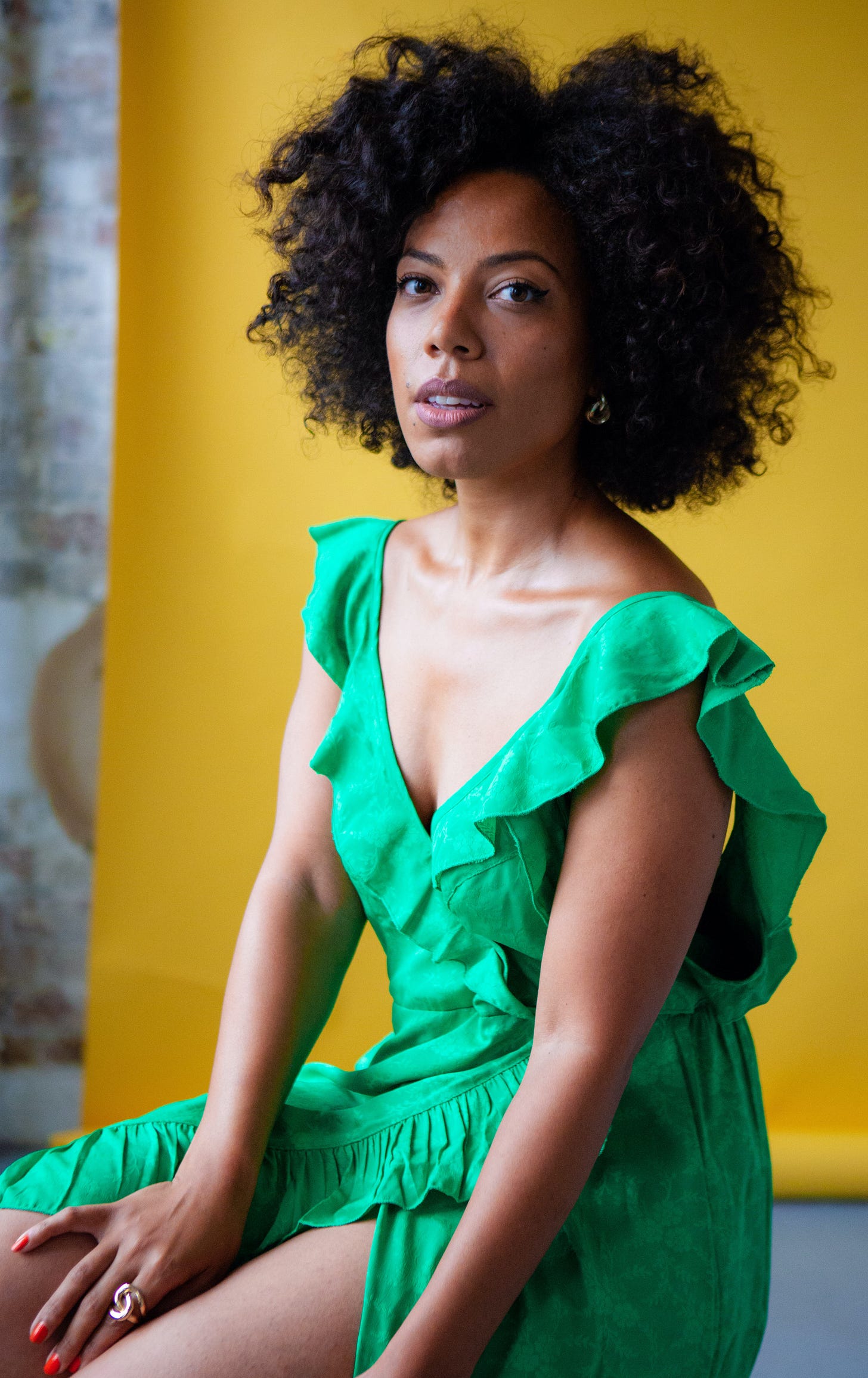Susan Dale: “As mixed people, we’re constantly being questioned”
The platform founder on her privilege, pick’n’mix culture and the disappointment of mixed people on TV
Hi, welcome back to Mixed Messages! This week I’m speaking to Susan Dale, who is of Kenyan and white British heritage. Susan is the founder of HaluHalo, a platform for exploring mixed-race identity that was one of the inspirations for this very newsletter. Susan’s passion for understanding mixed identity shines so brightly that condensing our conversation was tough. Enjoy!
How would you define your ethnicity?
My mum is English, and my dad is Kenyan. I’m an only child and didn’t grow up physically close to my dad’s family.
I’ve always identified as mixed-race, but the term does feel like a placeholder. The more conversations we have about mixed identity, the better able we’ll be to find the language to suit us. I used to call myself half-caste before I realised that it’s derogatory. It was what everyone called me, so I thought it was who I was. The poem Half-Caste by John Agard really resonated with me.
Have you ever identified as Black?
I’ve never referred to myself in that way, which people sometimes assume means that I’m ashamed of being Black. I’m not, but I feel fraudulent calling myself Black when I have privileges that darker-skinned Black women don’t.
Even though I grew up in a South East London council estate, I went to a very white, middle-class private school, and was bullied. Some of that was from Black students, which made me see that some people would never accept me as Black, just like some will never see me as white.
I can see why mixed-Black people do identify as Black, it’s nice to have something concrete to grab hold of. As mixed people, we can often feel like we’re floating.
Do you feel that way?
My dad didn’t impart his language, Swahili, or Kenyan food to me. I know for many mixed people, not having those things makes you feel like you can’t claim your identity. I think the beautiful thing about being mixed is that you can pick and choose and create your own culture – nobody can tell you what that should be.
Did you ever speak about race with your family?
My parents never talked about us being a mixed-race family, or about race in general. I think I picked up that it was an uncomfortable conversation.
My dad never seemed proud of being Black or affected by Black issues in the news – maybe that’s because he’s African, where everyone is Black, so he doesn’t see the big deal. Or maybe it’s because he’s in denial about racism. It can be a common defence mechanism to just keep your head down and assimilate when you come to the UK.
After the summer of 2020, which I found so painful, I sat my parents down and we had our first explicit conversation about race. My dad didn’t realise how much his disconnect with Kenya affected me. My Blackness is always going to stand out, but I didn’t feel like I had the culture to back up the answer to “where are you from?”.
Have you seen mixed representation in the media?
Yes, and no. While you might see mixed women in supermarket adverts, which sometimes feels like a box-ticking exercise, mixed people aren’t allowed to have a voice. Even on The Fresh Prince of Bel Air or The Cosby Show, you had Hilary Banks and Lisa Bonet, but they were positioned as Black characters. I understand why Black people are frustrated with mixed-Black people getting those roles, and it’s frustrating for mixed people too.
Why did you start HaluHalo?
I looked for mixed spaces online, but couldn’t find anything that spoke to me as a mixed woman in 2016; only disturbing Instagram accounts talking about mixed children like fashion accessories.
I created HaluHalo to rectify this, building a space to focus on mixed identity that wasn’t solely centred on the Black and white experience. I was seeing people who looked like me, but not hearing about their experiences, so as well as the words, it was important to me to have that visual representation, showing that there’s not one way to look or feel.
People were so willing to share their stories with me, but often they’d never had to consider the questions I asked them. Many people hadn’t spoken openly with their friends or family about their identity, but after HaluHalo they took charge of their narrative gained confidence.
If you could describe your mixed experience in one word, what would it be?
Complex. I think mixed people are a lot stronger than people give us credit for - we’re constantly being questioned, so we have to be informed about ourselves.
Next week, I’ll be talking to Andrea Thompson, Editor-in-Chief of Marie Claire. Subscribe to get Mixed Messages in your inbox next Monday!
Enjoy Mixed Messages? Consider supporting me on Ko-Fi so I can continue to grow this newsletter!
Mixed Messages is a weekly exploration of the mixed-race experience, from me, Isabella Silvers. My mom is Punjabi Indian (by way of East Africa) and my dad is White British, but finding my place between these two cultures hasn’t always been easy. That’s why I started Mixed Messages, where each week I’ll speak to a prominent mixed voice to delve into what it really feels like to be mixed.







